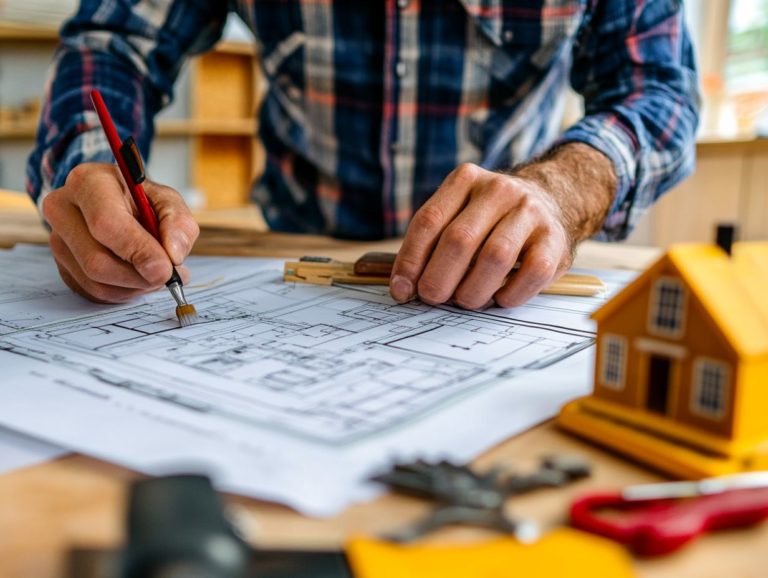What Are the Most Common Home Inspection Issues?
When you re buying or maintaining a home, understanding the importance of home inspections can save you from expensive surprises later on.
Home inspections reveal hidden issues that could affect your safety, comfort, and finances. From structural problems and electrical concerns to roofing and plumbing issues, you must know what to look for to protect your investment!
This article will take you through common home inspection findings, provide guidance on how to address them, and offer tips to prevent future problems, ensuring your home remains a secure haven.
Contents
Key Takeaways:
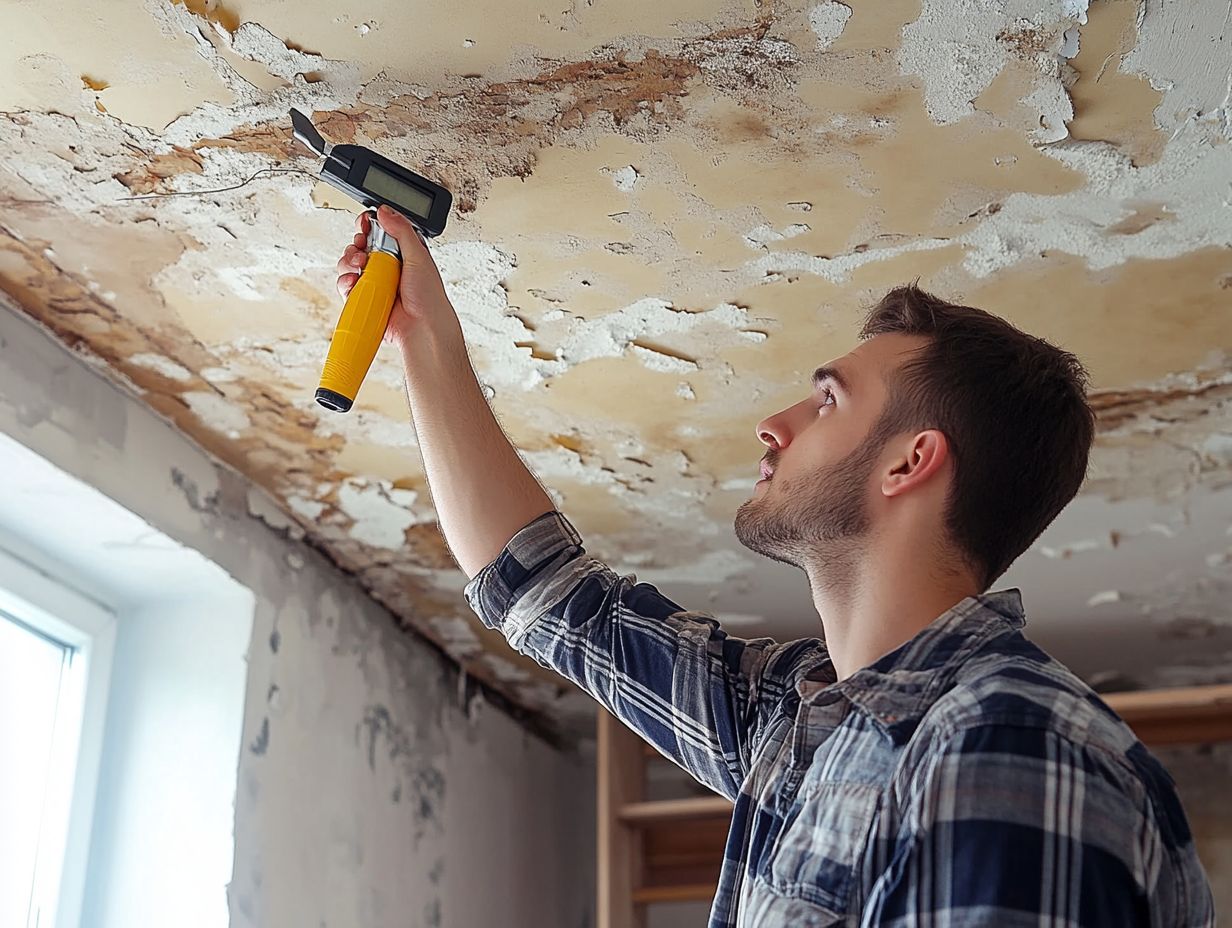
Home inspections are crucial for identifying potential problems and ensuring the safety and value of a home.
Common issues include structural, electrical, plumbing, roof, and foundation problems.
Homeowners can address these issues with necessary repairs, regular maintenance, and scheduling routine inspections to prevent future problems.
Importance of Home Inspections
Home inspections are an important part of the real estate journey, allowing you to understand the actual state of a property before making big money decisions.
In the competitive North Carolina market, a comprehensive home inspection can uncover vital details that can shift negotiation dynamics. You’ll gain insights into safety hazards, how well the building supports itself, and any necessary repairs that might be lurking beneath the surface.
A detailed inspection report gives you important information, enabling you to negotiate more favorable terms. For sellers, addressing these issues proactively can significantly enhance the property’s appeal and marketability.
Why Home Inspections are Necessary
Home inspections are essential for you, whether you’re buying or selling, as they provide a detailed assessment of the property’s condition. This process uncovers potential structural issues, electrical concerns, and plumbing problems that could present safety hazards.
By identifying these issues early, you can make informed decisions, saving yourself from unexpected costs that might arise after closing. On the other hand, as a seller, you’ll gain clearer insight into your property’s strengths and weaknesses, allowing you to proactively address any concerns or set a realistic price.
Common findings during inspections like old electrical systems that might not work safely, roof damage, or insufficient insulation can significantly influence negotiations. This gives you leverage to request repairs or adjustments to the sale price.
Ultimately, a thorough inspection not only safeguards your interests but also nurtures transparency and trust throughout the selling process.
Common Issues Found During Home Inspections
During a home inspection, you might encounter a range of common issues that could significantly affect both the value and safety of the property.
Structural concerns, plumbing problems, electrical issues, roof defects, and foundation troubles are just a few potential red flags. By identifying these problems early, you can spare yourself from costly repairs in the future and negotiate more favorable terms if you’re a buyer.
Don t overlook moisture issues, ventilation concerns, drainage problems, or even the threat of termite damage these critical findings demand immediate attention. Ultimately, they will inform the inspection report and guide your decisions for future home upgrades.
Structural Problems
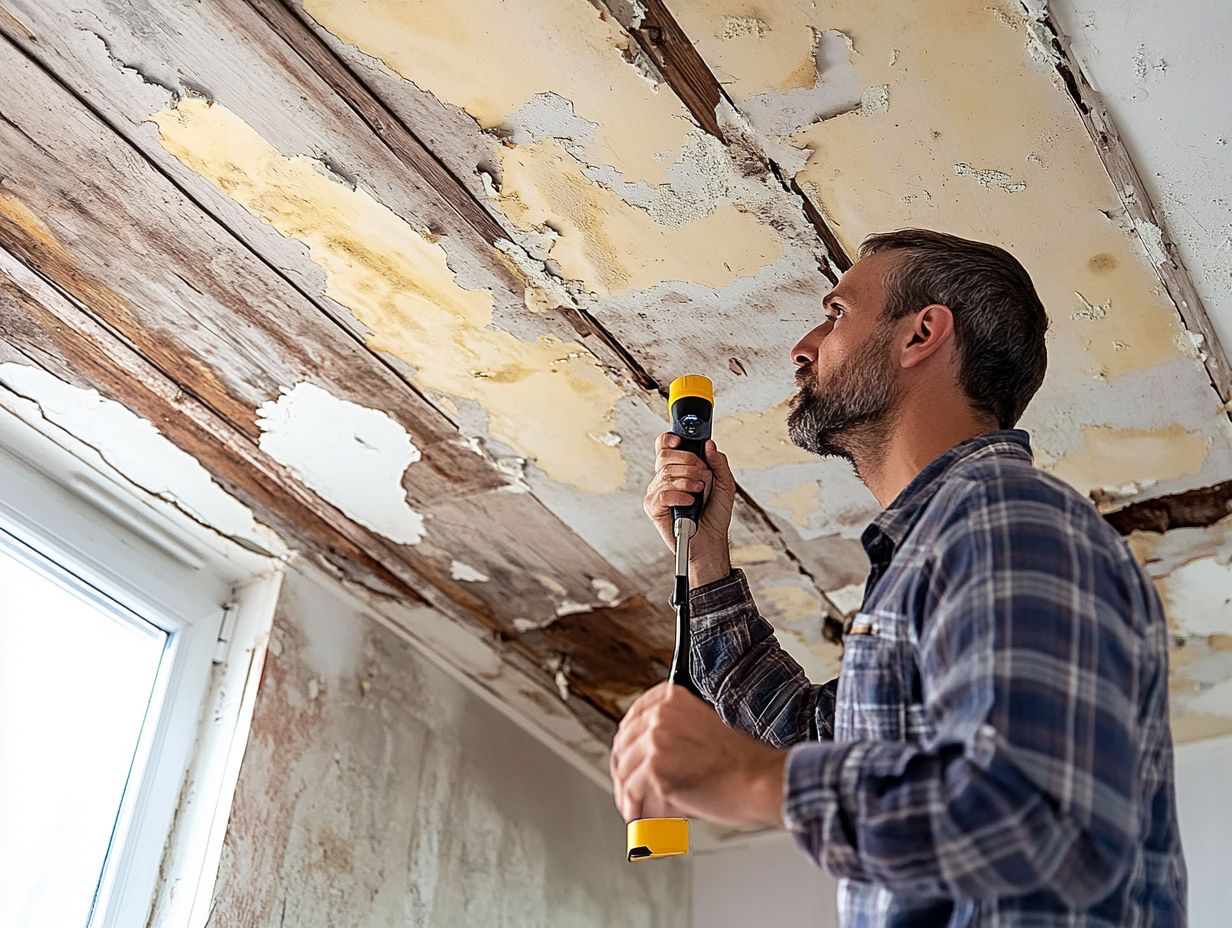
Structural problems uncovered during a home inspection can span a variety of issues, from foundation cracks to sagging beams, each presenting significant safety hazards if left unattended.
These deficiencies often stem from a multitude of sources, such as shifting soil, aging materials, or subpar construction practices. For example, foundation cracks might signal soil movement, threatening the stability of your entire home.
Likewise, sagging beams can create unsafe living conditions, heightening the risk of collapse over time. Neglecting these issues could lead to costly repairs and diminish your property s value, but more critically, they pose serious risks to the safety of all occupants.
Therefore, addressing these structural concerns swiftly is crucial not only for preserving the integrity of your home but also for safeguarding the well-being of those who live within it.
Don’t miss out! Protect your home today schedule your inspection now!
Electrical and Plumbing Issues
Electrical and plumbing issues rank among the most frequently reported findings during a home inspection. Problems can range from outdated wiring to leaky pipes, which can present serious safety hazards.
Inspectors often highlight the lack of Ground Fault Circuit Interrupter (GFCI) protection in crucial areas like kitchens and bathrooms. This is a safety device that cuts off electricity when it detects a problem, vital for preventing electrical shocks.
You may also find that outdated plumbing fixtures lead to leaks and inefficient water usage. This increases the risk of water damage and mold growth.
To mitigate these risks, consider upgrading your electrical systems to incorporate GFCI outlets and replacing old fixtures with modern, more efficient options. Addressing these concerns enhances your home’s safety and contributes to its long-term value.
Roof and Foundation Concerns
Roof and foundation concerns are critical aspects of a home inspection. Neglecting these areas can lead to serious safety hazards and expensive repairs if not addressed promptly.
When homeowners overlook issues like leaks from worn or missing shingles, they risk allowing water to seep into the structure. This can result in significant damage over time.
Similarly, foundation problems such as cracks or uneven settling can threaten the integrity of the entire home. These issues jeopardize the safety of the occupants and can lead to moisture problems, creating a breeding ground for mold and mildew.
Ultimately, addressing roof and foundation concerns promptly is vital for maintaining a durable and safe living space. Taking action now can save you headaches down the road.
How to Address Home Inspection Issues
Addressing issues uncovered during a home inspection is crucial for both buyers and sellers. Tackling these concerns head-on ensures essential repairs are made and strengthens your position in negotiations.
Repair Options and Costs
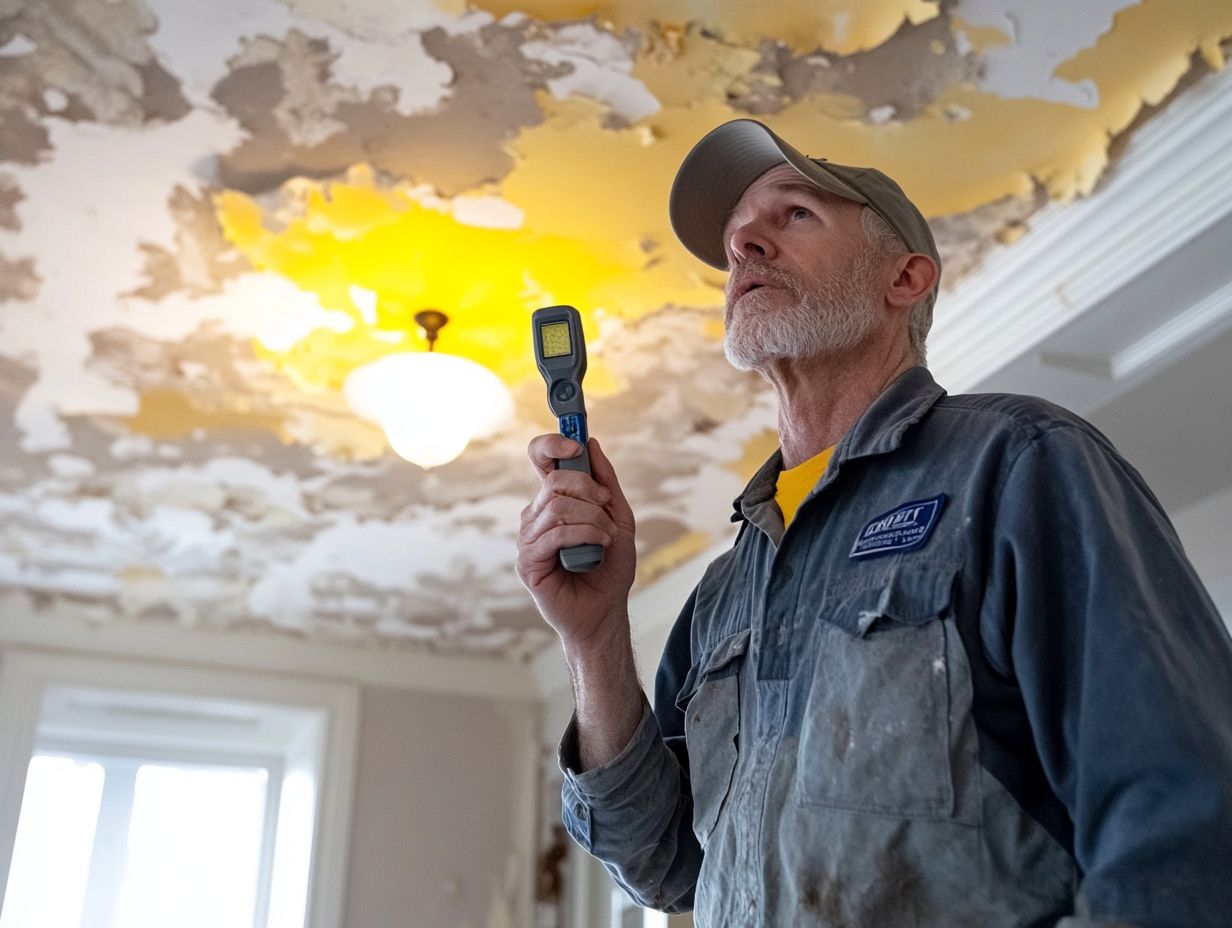
Repair options and costs can differ widely depending on the issues uncovered during the home inspection, especially regarding structural, electrical, and plumbing concerns.
For example, minor fixes like patching drywall or replacing a few broken tiles might cost between $100 and $500, making them relatively straightforward to tackle.
In contrast, structural repairs such as foundational work or roof replacements could range from $5,000 to $20,000. This significantly influences the overall condition and market value of your home.
Electrical and plumbing issues present a gamble; basic repairs may cost you $200 to $800, while more extensive overhauls can easily exceed $10,000.
Understanding these expenses helps you prioritize repairs and provides valuable leverage during negotiations, as potential buyers typically consider these costs when making an offer.
Preventing Home Inspection Issues
Preventing home inspection issues is crucial as a homeowner who wants to preserve your property’s value and ensure safety. It all starts with following regular maintenance tips that elevate the condition of your home.
Maintenance Tips for Homeowners
You can adopt several maintenance tips to prevent common home inspection issues. These include regular checks on your HVAC systems, plumbing, roofing, and addressing any visible safety hazards.
By staying proactive with these essential tasks, you enhance the comfort and safety of your living environment and reduce the likelihood of costly repairs down the line.
For instance, routine HVAC maintenance can improve energy efficiency and ensure optimal temperature control throughout the year.
Keeping an eye on your plumbing for leaks or corrosion safeguards against severe water damage.
Investigating the condition of your roofing shingles, flashings, and gutters is vital; timely repairs can thwart potential leaks and extensive renovations.
Eliminating safety hazards like loose railings or faulty wiring not only makes your home more appealing during inspections but also protects the well-being of everyone who lives there.
Start your maintenance checks today to protect your home and wallet!
When to Schedule Routine Inspections
Scheduling routine inspections is essential for homeowners who want to maintain their property’s condition. This proactive approach helps you identify issues before they escalate and plan for necessary upgrades.
Experts recommend conducting these inspections at least once or twice a year. However, factors like the age of your home, local weather conditions, and your previous maintenance history can influence how often you should schedule them.
By addressing potential problems early, you can significantly enhance your property s value while avoiding unexpected and costly repairs later. Many homeowners find that a little preventive care leads to substantial savings, allowing them to enjoy their living spaces with peace of mind.
Frequently Asked Questions
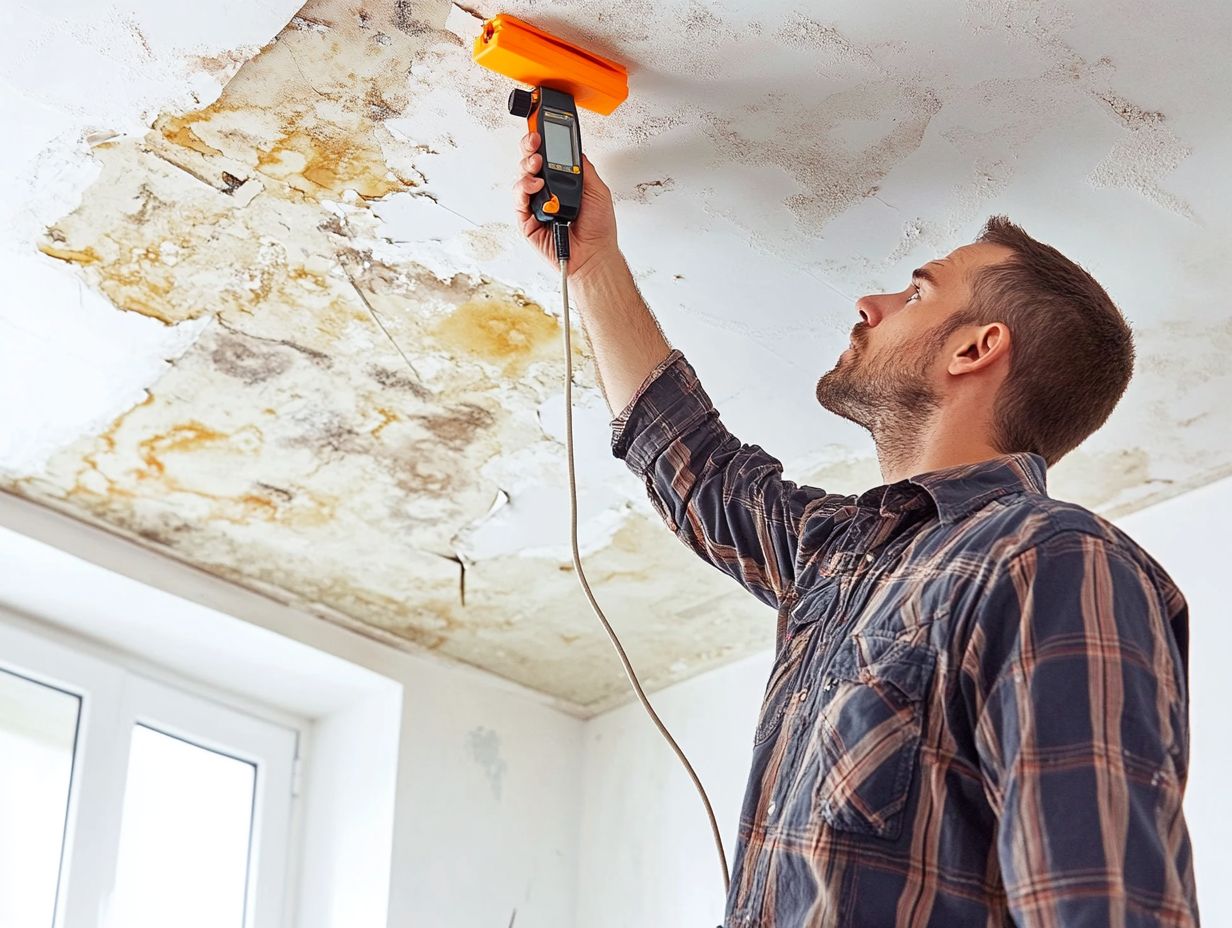
Spotting Common Home Inspection Problems
The most common home inspection issues include faulty electrical systems, plumbing problems, issues with the building’s structure, roofing concerns, and water damage. To understand what specific issues are typically identified, you can refer to what a home inspector looks for. These problems can vary in severity and potentially cost homeowners thousands of dollars to fix.
Preparing for a Home Inspection
To prepare for a home inspection, ensure your home is clean and clutter-free. Clear any obstructions that may prevent the inspector from accessing certain areas. It’s also a good idea to gather any documents related to the home, such as warranties, repair records, and maintenance reports.
Red Flags During a Home Inspection
Some red flags to look out for include mold, pest infestations, water damage, and foundation issues. These problems can significantly impact the safety and structural integrity of the home and should be addressed immediately.
Uncovering Hidden Problems
Yes, a home inspection can uncover hidden problems that may not be immediately obvious. The inspector will thoroughly examine the home, including its systems, structure, and foundation, to identify any potential issues that may be invisible to the naked eye.
Who Addresses Home Inspection Issues?
The responsibility for addressing home inspection issues can vary depending on the sale terms. Sometimes, the seller may be responsible for fixing any problems found during the inspection, while in other cases, the buyer may need to cover the costs. Make sure to review the sale terms closely this could save you a lot of money!
Steps to Take if Issues Are Found
If home inspection issues are found, carefully assess the severity and cost of the necessary repairs. You may want to negotiate with the seller to cover these costs or request a lower purchase price. Consulting with a professional contractor for an accurate estimate is also a good idea.



